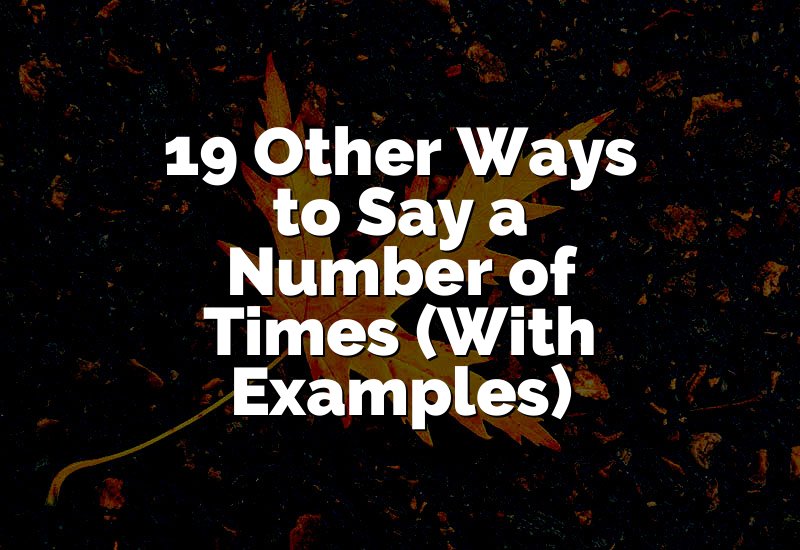You probably use the word ‘refer’ a lot in writing or talking, right? In this article, we will explore 28 fun synonyms for ‘refer’. Words like ‘mention’, ‘point’, or ‘direct’ can make your sentences more lively.
| Synonym | Meaning | Example |
|---|---|---|
| Mention | To talk about something briefly | She mentioned her new book in the meeting. |
| Point | To direct attention to something | He pointed out the mistake in the report. |
| Direct | To guide someone to a place or source | The teacher directed the students to the library. |
| Cite | To refer to a source for evidence | She cited several studies in her essay. |
| Indicate | To show or suggest something | The sign indicates the way to the park. |
| Recommend | To suggest something as good or helpful | I recommend this movie to my friends. |
| Allude | To mention something indirectly | He alluded to his past experiences during the talk. |
| Suggest | To offer an idea or plan | She suggested visiting the museum this weekend. |
| Submit | To present something formally | Please submit your application by Friday. |
| Address | To deal with or focus on something | The teacher addressed the issue during class. |
| Recommend | To advise someone to do something | I recommend reading this article before the exam. |
| Quote | To repeat someone else’s words | He quoted Shakespeare in his speech. |
| Guide | To show the way or help | The guide led us through the forest safely. |
| Refer back | To mention something from before | He referred back to his first point in the lecture. |
| Recommend | To suggest a course of action | I recommend taking breaks during long work hours. |
| Mention briefly | To talk about something shortly | She mentioned briefly the changes in the plan. |
| Allude to | To hint at something | The author alluded to history in the story. |
| Point out | To show or highlight | He pointed out the key facts in the report. |
| Submit for review | To give something to be checked | Please submit your essay for review before submission. |
| Direct attention | To make someone notice | The teacher directed attention to the mistake on the board. |
| Refer to | To mention or direct | He referred to the old book during the class. |
| Cite as example | To use as evidence | She cited the example of a famous scientist. |
| Recommend strongly | To suggest with emphasis | I recommend strongly that you try this recipe. |
| Quote directly | To repeat exactly | He quoted directly from the article. |
| Guide carefully | To lead with care | The mentor guided carefully through the project. |
| Address clearly | To deal with openly | The speaker addressed clearly the problem at hand. |
| Suggest politely | To offer an idea gently | She suggested politely that we take a break. |
| Point briefly | To show in short | He pointed briefly at the error. |
Mention
Mention means to talk about something in a short and quick way. It is often used when you don't want to give too many details. You can mention something in a conversation or in writing. Using this word makes your sentences sound smooth and friendly. Many people use ‘mention’ when sharing small ideas or reminders. You can also use it to bring attention without being too serious or formal. It helps in casual talks too.
- She mentioned her new hobby to her friends.
- He mentioned the rules before starting the game.
- I mentioned the movie in our chat yesterday.
Point
Point means to show or direct attention to something. You can point at objects, ideas, or even mistakes. It helps others notice important things easily. People often use ‘point’ when they want to guide or teach. Pointing can be done with your finger, words, or even writing. It is simple and makes communication clear. This word works well in classrooms, meetings, and casual talks.
- She pointed at the correct answer on the board.
- He pointed out the missing step in the process.
- I pointed to the map to show the route.
Direct
Direct is used when you guide someone to a place, person, or information. It also means to show the right path or method. Directing is helpful when someone is confused or lost. You can direct people physically or with words. It can also mean advising someone about what to do. Using this word makes instructions strong but friendly.
- The guard directed us to the main gate.
- She directed the students to the library for research.
- He directed his friend to call the manager.
Cite
Cite means to mention a source of information as proof. It is often used in writing, essays, or reports. When you cite, you give credit to someone else's work. This is important in studies and research. People also use ‘cite’ to support an idea. Citing shows honesty and makes your argument stronger. It can be done with books, articles, or even speeches.
- She cited a famous author in her essay.
- He cited statistics to support his point.
- I cited an example from history to explain my idea.
Indicate
Indicate means to show, point out, or suggest something. It can be signs, gestures, or words. People use ‘indicate’ to help others understand easily. It shows attention to details or directions. Indicating can be gentle or formal. You can indicate when giving instructions or giving hints. This word helps make conversations smooth and organized.
- The arrow indicates the right direction.
- She indicated that the meeting was canceled.
- He indicated the mistake in the plan.
Recommend
Recommend means to suggest something as good or useful. You use it when you want someone to try something helpful. It can be a place, a book, a movie, or even an idea. Recommending shows care and advice. You can also recommend politely or strongly depending on the situation. People love to follow recommendations from friends or experts.
- I recommend visiting the museum this weekend.
- She recommended a new restaurant to us.
- He recommended reading that book for knowledge.
Allude
Allude means to mention something indirectly. It is like giving a small hint about a topic. People use it in conversations or writing when they don't want to say it clearly. Alluding can make your sentences more interesting. It keeps the listener curious. You can allude to past events, ideas, or stories. It is useful in stories, speeches, and casual talks.
- He alluded to his childhood memories.
- She alluded to a famous movie in her speech.
- The writer alluded to history in the novel.
Suggest
Suggest means to offer an idea or plan. You use it when you want to give advice or options. Suggesting is friendly and helpful. You can suggest places, actions, or thoughts. It is polite and soft compared to giving orders. People often appreciate suggestions from friends or teachers. Suggesting also shows you care about others' choices.
- She suggested going for a walk after lunch.
- He suggested reading the new book.
- I suggested visiting the park on Sunday.
Submit
Submit means to give or present something formally. It can be a report, an application, or a request. People use submit in schools, offices, and contests. Submitting shows respect for rules and timelines. It is often a required action. You can submit electronically or physically. Using this word makes your sentences official and organized.
- Please submit your homework by tonight.
- He submitted the form to the office.
- I submitted my essay before the deadline.
Address
Address means to deal with a topic, problem, or person directly. It can also mean speaking to someone in a formal or polite way. Addressing helps make things clear and organized. People often address issues in meetings, letters, or discussions. Addressing also shows responsibility and attention. Using it makes your sentences stronger and purposeful.
- The teacher addressed the students about the project.
- She addressed the complaint politely.
- He addressed the problem during the meeting.
Quote
Quote means to repeat someone's exact words. It can be from a book, speech, or article. Quoting shows respect for the original speaker. People use quotes to support ideas or make points stronger. You can quote directly or slightly modify it. Quoting also makes your writing more interesting and credible.
- He quoted a famous author in his speech.
- She quoted her teacher's advice in the essay.
- I quoted a line from a movie yesterday.
Guide
Guide means to show the way or help someone do something. It can be in places, tasks, or learning. Guiding makes things easier and safe. People use guide for tours, instructions, or advice. You can guide gently or strongly depending on the need. It is friendly and helpful.
- The guide led the tourists through the museum.
- She guided the students with care.
- He guided me on how to use the app.
Refer Back
Refer back means to mention something that was said before. It is often used in writing or speeches. Referring back helps others remember points clearly. It keeps conversations organized and smooth. People often refer back to earlier ideas or examples. It is useful in studies, reports, and casual talks.
- He referred back to his first idea during the meeting.
- She referred back to the previous example in her essay.
- I referred back to my notes to explain better.
Mention Briefly
Mention briefly means to talk about something in a short way. It is similar to mention but focuses more on being quick. People use it to avoid too much detail. Mentioning briefly is polite and keeps conversations smooth. It is also helpful in summaries or small talks.
- She mentioned briefly the changes in the schedule.
- He mentioned briefly the rules before starting.
- I mentioned briefly the main idea in my chat.
Allude To
Allude to means to hint at something without saying it directly. It is useful in stories, speeches, and conversations. Alluding keeps listeners curious and engaged. You can allude to events, ideas, or experiences. It is a gentle way to give information without being too direct.
- The author alluded to a historical event in the story.
- He alluded to his past experiences in the talk.
- She alluded to a famous movie scene.
Point Out
Point out means to show or highlight something clearly. People use it to direct attention. Pointing out can be done in meetings, schools, or daily talks. It is helpful to avoid mistakes or emphasize important details. You can point out facts, errors, or ideas.
- He pointed out the important steps in the plan.
- She pointed out the missing details in the report.
- I pointed out the key points in the lecture.
Submit For Review
Submit for review means to give something to check before final approval. It is common in schools, offices, or projects. Reviewing ensures correctness and quality. People often submit essays, reports, or applications for review. It is polite and organized.
- Please submit your report for review before submission.
- She submitted the project for review to her teacher.
- He submitted the design for review to the manager.
Direct Attention
Direct attention means to make someone notice something. It is used to focus on important points. People use it in classrooms, meetings, or presentations. Directing attention is helpful to avoid confusion. It makes communication stronger and clear.
- The teacher directed attention to the new rule.
- She directed attention to the missing information.
- He directed attention to the main issue.
Refer To
Refer to means to mention or direct someone to something. People often use it in discussions or writing. Referring helps give examples or information. It makes communication more organized and helpful. You can refer to books, people, or events.
- He referred to the old article during his speech.
- She referred to the map for guidance.
- I referred to the notes to explain clearly.
Cite As Example
Cite as example means to use something as proof or illustration. It shows support for an idea. People use examples to explain better and make things clear. Citing examples makes your points stronger. You can use books, events, or people as examples.
- She cited a famous scientist as an example.
- He cited the new policy as an example.
- I cited a story as an example in my essay.
Recommend Strongly
Recommend strongly means to give a suggestion with emphasis. It shows your confidence in the advice. People use it when something is really useful or important. Recommending strongly can be for products, actions, or ideas. It is polite but firm.
- I recommend strongly that you read this book.
- She recommended strongly visiting the new museum.
- He recommended strongly taking breaks during work.
Quote Directly
Quote directly means to repeat exactly what someone said. It is common in writing, speeches, and reports. Quoting directly keeps the original meaning. It is useful for evidence and support. People use it to avoid mistakes or misinterpretation.
- He quoted directly from the article in his speech.
- She quoted directly from her teacher's lecture.
- I quoted directly from the news report.
Guide Carefully
Guide carefully means to show the way or help with care. It ensures safety and understanding. People use it in teaching, traveling, or tasks. Guiding carefully shows attention and kindness. It helps others follow instructions without problems.
- The mentor guided carefully through the project steps.
- She guided carefully during the city tour.
- He guided carefully on how to use the tool.
Address Clearly
Address clearly means to deal with or speak about something openly. It helps avoid confusion. People use it in meetings, writing, and talks. Addressing clearly makes your communication strong and understandable. It also shows honesty and confidence.
- The speaker addressed clearly the main issue.
- She addressed clearly the changes in the plan.
- He addressed clearly the rules for everyone.
Suggest Politely
Suggest politely means to offer an idea in a kind way. It is gentle and friendly. People use it in conversations, emails, or advice. Suggesting politely shows respect for others' choices. It is effective in both formal and casual talks.
- She suggested politely that we take a short break.
- He suggested politely checking the schedule again.
- I suggested politely trying a different method.
Point Briefly
Point briefly means to show or direct attention in a short way. It is quick and effective. People use it in presentations, talks, or instructions. Pointing briefly helps save time and avoid too much detail. It is useful when sharing small information.
- He pointed briefly at the mistake on the board.
- She pointed briefly to the important note in her file.
- I pointed briefly at the main idea in my chat.

Final Thoughts
You can see that ‘refer’ has many fun synonyms to make talking and writing more lively. Words like ‘mention’, ‘point’, or ‘guide’ help explain ideas in different ways. Using them can make your conversations more friendly and clear. Try them in your next chat or essay, and notice how they make sentences feel smooth and natural.









